With global temperatures continuing to break records in recent years, it’s important to cast an eye towards the future. While efforts to reduce emissions remain in a political quagmire, time is running out to arrest the slide into catastrophe.
Further compounding the issue are a variety of positive feedback loops that promise to further compound the problem. In these cases, initial warming has flow-on effects that then serve to further increase global temperatures. Avoiding these feedback mechanisms is crucial if the Earth is to remain comfortably livable out to the end of the century.
A Multitude of Causes
The issue of climate change often appears as a simple one, with the goal being to reduce greenhouse gas emissions in order to prevent negative consequences for human civilization. Despite this, the effects of climate change are often diffuse and intermingled. The various climate systems of the Earth interact in incredibly complex ways, and there are many mechanisms at play in these feedback effects that could tip things over the edge.
Ice-Albedo
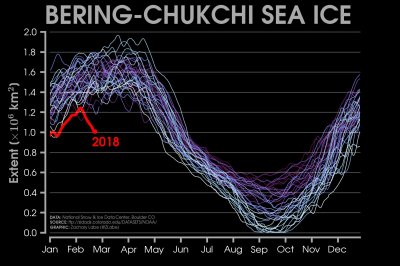
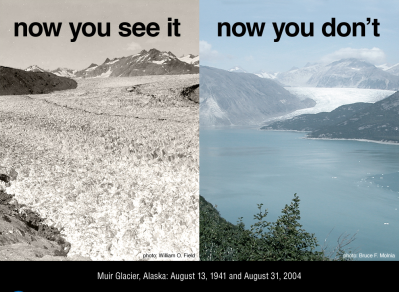
The ice-albedo feedback mechanism is a climate process in which the amount of ice on earth has a significant effect on global temperature changes. It’s a positive feedback relationship, meaning it has the possibility of causing a runaway effect if not managed carefully. Higher global temperatures cause sea ice, land ice, and glaciers to melt. The ice, which is highly reflective, is instead replaced with open water, or land, which is less reflective, having a lower albedo. This causes the Earth to retain more heat from solar radiation, instead of reflecting it back into space. This further raises temperatures, causing more ice to melt, creating the positive feedback effect.
Ice levels around the world are an active target of study for climate scientists. Records show major sustained losses over recent decades to major ice sheets, and glaciers are retreating all over the world. These areas, formerly covered in highly reflective ice, are now absorbing more heat than ever from solar radiation. As temperatures continue to rise, it’s likely that ice packs around the world will continue to thaw, further exacerbating the effect.
Methane Releases From Not-So-Permafrost
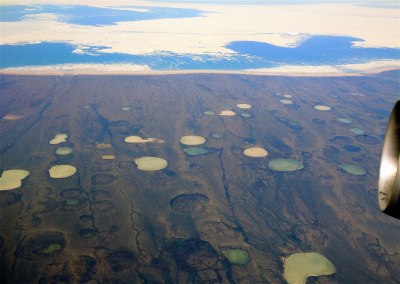
Another major concern of climate scientists is the possibility of large-scale releases of methane and other greenhouse gases into the atmosphere from a variety of environmental sources. Areas such as Western Siberia have large reserves of methane trapped under permafrost, while significant reserves exist under the oceans, too. As the climate warms, much of this permafrost is beginning to thaw, releasing the stored methane trapped below the surface. This has the effect of further increasing warming, as methane is a potent greenhouse gas, with a warming potential over 20 times that of CO2 over a 20 year time frame.
There is significant worry that a tipping point could be reached in which there is an abrupt release of large amounts of methane from these sources, causing a rapid increase in global temperatures. In this event, reducing human emissions would do little to help, as the released greenhouse gases can not simply be returned to the soil. Research is ongoing to produce models to predict what will happen in the event of further thawing of formerly-permanent permafrost. There is some hope — slower thawing seems likely to reduce the amount of harmful greenhouse gases released, as plants grow in formerly frozen areas, once again locking up carbon. Faster thaws threaten more massive, abrupt releases, which are more likely to result in rapid temperature rise.
Ocean Current Slowdown
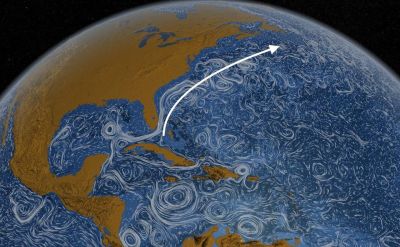
The world’s oceans are a major player in the climate system. Acting as a giant heat sink, what happens in the oceans tends to have staggering effects on weather patterns everywhere. Major ocean currents are a large part of this mechanism, responsible for transporting huge amounts of heat stored in these waters around the globe.
Scientists have been monitoring changes in ocean currents, and have observed major changes in recent years. The Gulf Stream is one such current, which has often been linked to major climate events in the distant past. It’s slowing down, and is currently weaker than at any point in the last 1600 years. The weakening is unprecedented, and current research suggests the change is at least in part due to human-induced climate change. The effect is multifaceted, with temperature increases and freshwater from melting sea ice both playing a role.
Many theorize that a slowdown or shutdown of ocean currents could have major consequences on the world climate. Extreme warming or cooling could occur in different areas, and storm activity, such as hurricanes, could increase in both frequency and magnitude. Research suggests that changes in these currents can be both an indicator and driver of climate shifts, and it’s likely that ocean currents will continue to change as anthropogenic warming continues.
Forest Loss And Fires
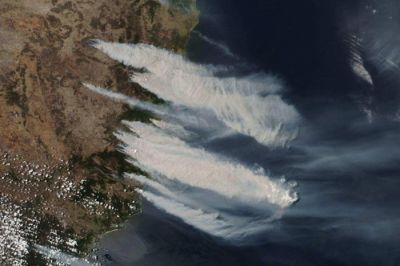
Forests are an important player in the global climate, acting as a major carbon dioxide sink. However, in recent years, increased temperatures and extreme wildfires have led to large swathes of forests dying off or simply going up in smoke. As trees die and are broken down by microbes, or as they burn up in fires, this leads to releases of greenhouse gases. This causes further warming, compounding the problem in yet another example of positive feedback.
Wildfires are becoming worse and more frequent. Last year’s Arctic wildfires released a massive volume of CO2 in June alone — equal to Sweden’s annual total output. After facing its hottest and driest year on record in 2019, Australia also faced its worst recorded fire season, with over 10 million hectares burned. These fires grew large enough to create their own weather, with Pyrocumulonimbus clouds observed forming from the smoke and causing lightning storms which spawned further fires in other areas. This is a case of positive feedback in the very short term, with large fires creating further fires due to the harsh conditions.
Forest die-offs have their own consequences, too. Boreal forests are shrinking, thus acting as less of a carbon sink as tree numbers begin to dwindle. As the forests thin out, conditions get warmer and dryer for remaining trees, further accelerating the decline. This also leads to issues as other species, both flora and fauna, have to adapt as tree cover shrinks and conditions change.
What Can Be Done?
The aforementioned feedback mechanisms are all current areas of research for climate scientists around the globe. The topic of abrupt and sudden climate change is only loosely understood. Most existing climate models are based on steady, gradual changes to the climate from human activity. These models don’t account for the possibility of large sudden methane releases from formerly frozen soils, or mass releases of carbon dioxide from continental-scale wildfires.
Unfortunately, the mechanisms at play in these feedback scenarios are far beyond the scale that humanity can realistically arrest. The only real mechanism with which to play with is the output of greenhouse gases from human activities. By reigning in emissions, there is a possibility that humanity still has time to avoid triggering these tipping points. Only time will tell.

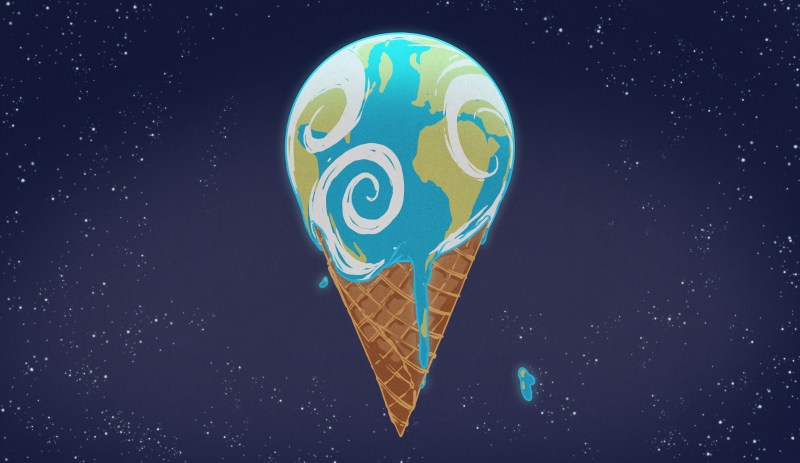






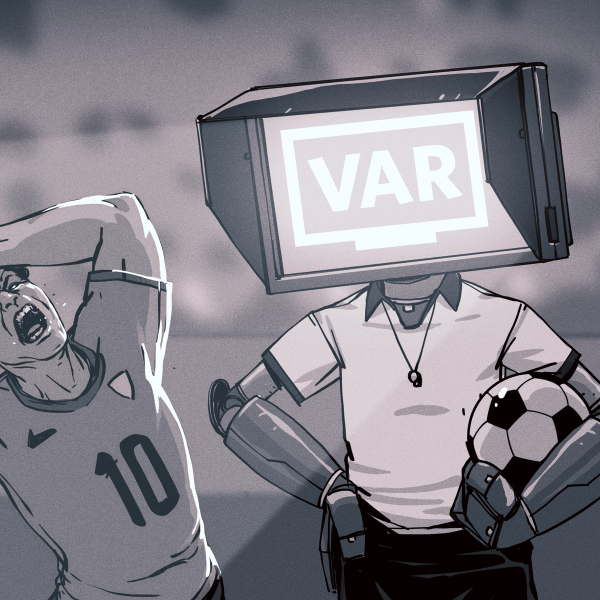


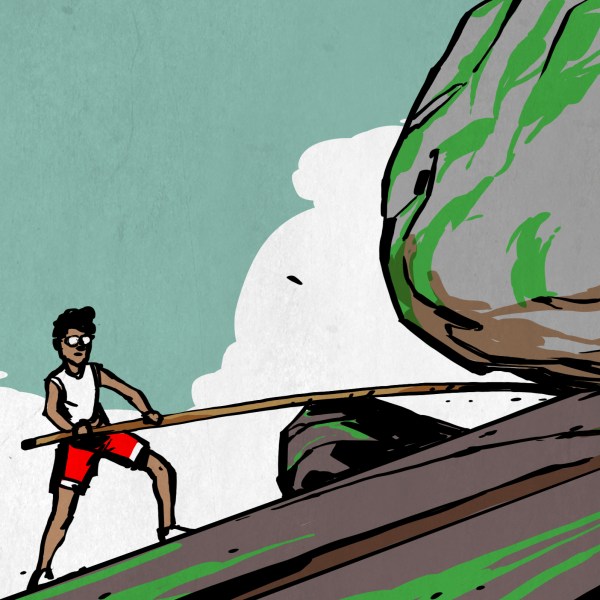




So elegant.. sounds like you’re talking to yourself while KP’s making valid points
It’s clear that the fossil fuel lobby’s propaganda has been very effective.
Taking just your first point, the mechanism behind the greenhouse effect of CO2 and methane is well understand, and information on it abounds… but you clearly would rather accept some denier flim-flam about “minuscule amounts” than look it up. The amount of CO2 in the atmosphere has gone up by more than 40% in the last century or so, to levels not seen for almost a million years (ie before man). That;s not minuscule.
But the big tell is ” to fill the coffers of Al Gore”. The denier’s boogeyman. Do you also believe in the Tooth Fairy?
There are many hacks you can dedicate to:
– hacks to reduce energy consumption
– hacks to reduce energy production’s CO2 footprint
– hacks to keep a maximum level of comfort with a
minimum expenditure of resources (I’d say this is
THE engineer’s challenge, before it became corrupted
by salespeople!)
and last, but not least…
– hack the political system so that this transformation
isn’t leaving behind the most vulnerable.
Hack away!
What about hacking the political and media systems to base policies on facts and science (which is never “settled”, otherwise the science it is not) instead of hysteria ?
The system has already been hacked – to ignore and downplay the actual “facts and science”. And there’s tons of willing acolytes like yourself rebroadcasting the lies and distortions.
When somebody says something as vapid as “Last – helping the “nature” is morally justified only after the last human being had been helped.”…. well what did you expect – flowers?
I optimistically thought ethics has it’s place in engineering. Is it just boring for you ? But wait, all of this discussion hinges on ethical questions.
Ethics has its place.
Spewing unproven, irrelevant and out-of-context statements about climate is unethical. Science-free CC denial is unethical.
Not understanding how we came to be, and nature’s role in shaping and sustaining us, yet firing off that inane “morality”, well that’s not necessarily unethical. But it is pretty thoughtless.
So far in the discussions here you have indulged in expressing strong opinions, sometimes insults, ignoring any valid scientific issue, but with the word “science” repeated more often than necessary. “samogonny Mefisto w leninowskiej kurtce” <- you will not understand, but some others might.
You say this after dumping a couple shovelfuls of denier manure upthread? Check your own facts first.
+1
And even more. I can say very strange for fooled by ecologists people thing, but GREENHOUSE EFFECT IS NOT A PROBLEM, IT IS A SOLUTION for nearly all current humanity problems.
Ecologists propaganda hides another, very important effect of greenhouse. The reducing of temperature gradients from equator to poles and reducing temperature differences beetween day and night and winter and summer. Eocene planet was completely green, from pole to pole, and had a smooth moderate climate all over the world. This means that every square mile of Earth will be habitable.
So, if now you have -30C at winter and +30C in summer, greenhouse warming by 10 degrees C does not mean that you will get just -20C to +40C shift. You wil also get reduce in difference. You will get something like from -5 to +25. Eocene temperatures proves it.
If you take a look at Earth history, you will find that smooth warm greenhouse climate is normal state of Earth. And after every Ice age, the climate returns to its natural greenhouse paradise. Take a look at the temperature and vegetation maps for eocene. They are not near hell, they are close to the paradise. Tropical temperatures remains the same, but gradient to poles become much lower. And there will be no winter. Ice hats and deserts will disappear. No more problems with drinring water. No need to spend resources for heating or cooling to survive at extreme temperatures.
What will be the consequences of global warming? Completely green Earth, from pole to pole. New endless habitable fertile territories from Antarctica to Siberia, Alaska and Greenland including modern deserts. Smooth and warm climate all over the world without rapid changes, hurricanes, tornadoes for tens of million years.
Global warming? Greenhouse effect? Why should I fight against it? Why should I want to live in current climate hell, when the half of planet is dead and other half is completely dead.
Yes, there will be some drawbacks, may be some towns become Venecia, few species will extinct. But this is very moderate price for making our Earth green again. Really green, from pole to pole.
Read “current climate hell, when the half of planet is dead and other half is completely dead.”
As “current climate hell, when the half of planet is poorely habitable and other half is completely dead.”
There will be no any need to displace hundreds of millions. If you study eocene climate research papers, you will find out, that tropical climate will not change, but get rid of hurricanes, tornadoes and droughts, medium latitudes will just lost winter, and polar latitudes will get something like modern mid-european seasons with mild winter and soft summer. So people on Earth will just get more comfortable climate just where they are without any need to move somewhere.
But it seems that you just don’t want to study anything.
“Greenhouse” stands for green, and rightly so. Science abut the greening effect of CO2.
“Global environmental change is rapidly altering the dynamics of terrestrial vegetation, with consequences for the functioning of the Earth system and provision of ecosystem services1,2. Yet how global vegetation is responding to the changing environment is not well established. Here we use three long-term satellite leaf area index (LAI) records and ten global ecosystem models to investigate four key drivers of LAI trends during 1982–2009. We show a persistent and widespread increase of growing season integrated LAI (greening) over 25% to 50% of the global vegetated area, whereas less than 4% of the globe shows decreasing LAI (browning). Factorial simulations with multiple global ecosystem models suggest that CO2 fertilization effects explain 70% of the observed greening trend, followed by nitrogen deposition (9%), climate change (8%) and land cover change (LCC) (4%).”
https://www.nature.com/articles/nclimate3004
To rise the sea level you need water. But huge grow in vegetation all over planet need water too. And you occasionally forget about evapouration due to higher temperatures. So, calculating sea level rising just by calculating of ice mass and dividing it by sea square is as dumb, as all that global warming panic. So, the real sea level rising will be far less than ecologinsts intimidate. And just for your information. Half of Nederlands live 6 meters below sea level for a very long time. I don’t see Dutch people running out their country.
The alarmist data often does not factor in the land sinking as the result of geological process. Below a link describing the sea level measurement challenges.
“Sea level changes on a variety of space- and time-scales, and different measuring systems measure different subsets of the various components that make up the total picture. This is further complicated by the fact that different observing systems measure sea level in different reference frames (see table below), and that geological effects (long- and short-term) can move the reference frame and/or the sea level with respect to that reference frame! See our section “Why does sea level change” for more information on this.”
https://research.csiro.au/slrwavescoast/sea-level/measurements-and-data/sea-level-measurements/?fbclid=IwAR0bb-ISpd3NOqgKT_b_X0jq2xO9uuwvRao_y6WQSoKGw03Ej5J1gOR_7Xk
I’m afraid that this info would not have any use here. HaD sink to the censorship of posts with any facts that somehow question all that global warming hysteria. :) Definitely not a hack and not even a day.
Is not HaD censorship; your posts still live, yes? Is not greening, is browning of planet we fear. With CO2 rise, we make human planet back into dinosaur planet, no?
And not everyone is good with dykes as the Dutch; for example – New Orleans & Katrina.
kpharck and my posts with mention of eocene climate researches was deleted. My point was that greenhouse effect with global warming is probably not a problem at all, but a solution for many humanity problems.
As for “dinosaur planet” – eocene was a kingdom of mammals. dinosaurs extincted in previous age. So, what is wrong with planet green from pole to pole, without deserts and ice hats due to greenhouse effect with CO2 levels at least twice higher than modern one? It was a pleasant place, full of life everywhere with warm moderate climate. Isn’t that every ecologist have to dream about?
It took ~50 million years to get from the eocene to now. You think it’s going to be good thing to be jumping back to eocene levels of CO2 in like 200 years? While depleting a vital non-renewable resource? What could possibly go wrong?
We’re kind of used to THIS climate, and so are just are just about all the other living creatures, thanks just the same. Maybe give us just a million or so years to evolve with a slowly-changing climate?
Ken N> You think it’s going to be good thing to be jumping back to eocene levels of CO2 in like 200 years? While depleting a vital non-renewable resource? What could possibly go wrong?
So what could possibly go wrong? We will return Earth climate to its stable, natural state. And will do it in natural way, by returning buried by ice age CO2 to it’s proper place – into atmosphere. 200 years is long period. Humanity invent a lot of hacks, so it would not be a problem to pass that period without any significant problems. In most cases, you just get rid of that awful winter, and that’s all.
Ken N> We’re kind of used to THIS climate
Not “used to”. We “have to survive” in THIS climate. Tell me please, how such climate, when the half of planet is naturally dead, could be something that worth saving.
Вы, должно быть, шутите, товарищ.
Ken N> Вы, должно быть, шутите, товарищ.
Very nice level of counterarguments. Кто бы сомневался. :)
Figure 2 and 3 in this “Environmental Hazards ” report show that the costs of environmental disasters normalized vs. GDP are falling. Perhaps the hacking efforts should instead be directed to the areas which benefit people more ?
https://www.tandfonline.com/doi/full/10.1080/17477891.2018.1540343
As of today there are now reports of many new and massive craters in ice fields suddenly appearing. The news report stated that scientists believe this was from frozen methane sequestered beneath the surface suddenly erupting as the entire deposit changes from frozen methane to gaseous methane is a violent eruption. As stated before, methane is much more powerful contributor to the global warming issue than CO2 is but it has been sequestered in frozen form till now, so these sudden releases will accelerate the rate of global warming and beget further releases. The deposits are massive and widespread and have existed for millennia with nary more than a footnote about them as a scientific curiosity. They will soon become headline news. Earth seems to be hitting a hysteresis point and the frozen methane releases are the item to watch as they are a sudden and massive spike in the greenhouse gasses being emitted.
In my opinion, we are experiencing the start of the “tipping point” if not ALREADY past it.